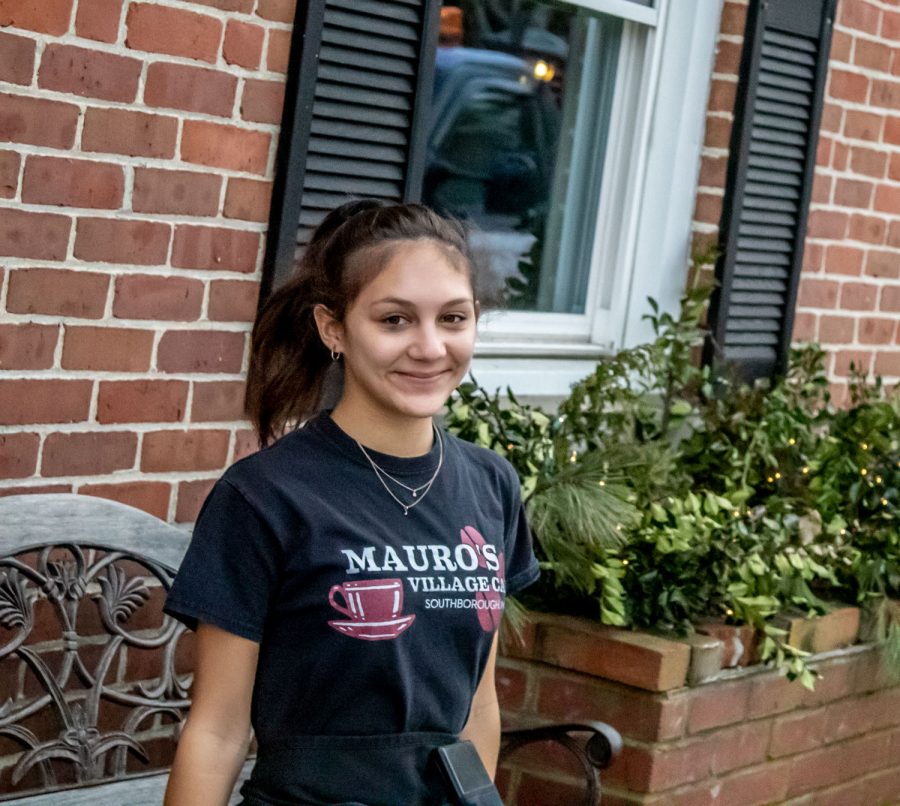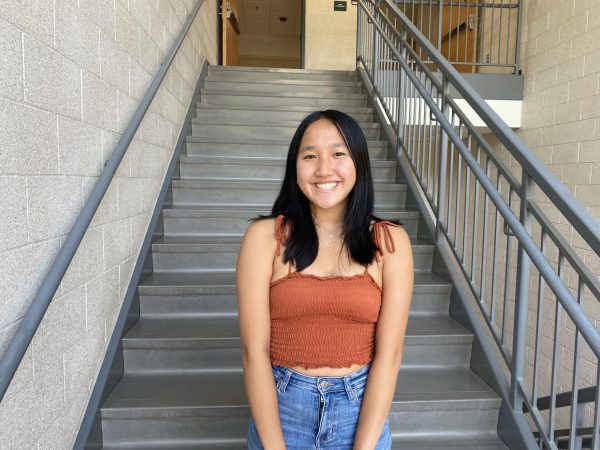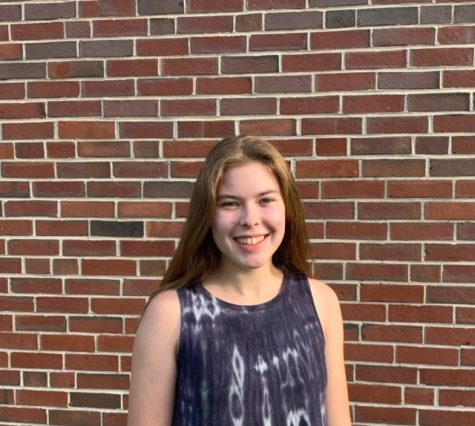Students adapt as COVID impacts workplaces
The pandemic has forced many working students such as senior Anni Garden who works at Mauro’s Cafe in Southborough, to adjust to different working conditions.
January 20, 2021
Amidst the COVID-19 pandemic, many students with jobs have been working in new conditions to avoid exposure to the virus.
According to the Town of Northborough and Town of Southborough, Northborough has been categorized as a high-risk town with 609 cases as of Dec. 17, while Southborough has also been categorized as a high-risk town with 227 cases as of Dec. 21.
With these high case counts, there is an increased risk for student workers, as they come in contact with hundreds of people each shift. However, no students have tested positive for COVID due to transmission through work.
“Obviously, working has the risks of catching COVID, but the risks can be decreased with social distancing, especially if the students are working in a place where both them and their coworkers all wear masks,” school nurse Heather Allen said.
On Nov. 2, Governor Charlie Baker issued a mandate requiring all persons to wear face coverings in all public places, with the exception of those with medical or disabling conditions.
“It’s helpful that masks are mandated at this point, so different people aren’t doing different things,” Allen said.
Senior Anni Garden started working at Mauro’s Cafe in Southborough the summer before her sophomore year. At the beginning of 2020, when some workers had to stay home due to COVID risk factors, Garden got promoted from a cashier to a waitress.
“I’m kind of a germaphobe, so I obsessively wash my hands and wear a mask,” Garden said. “I know I’m fortunate to have a job right now.”
Full-time employees at Mauro’s Cafe are required to take COVID tests on a weekly basis, but part-time employees who work only once a week, like Garden, do not need to get tested.
“I’d say Mauro’s is doing a pretty good job; we’re doing a lot more cleaning, and [we’ve] amped up the safety level overall,” Garden said.
Senior Emma Shek started working at TJ Maxx in Hudson in mid-July of 2020.
“There are different roles now, like someone has to clean the store, count how many people come in and wipe all the carts,” Shek said.“These are things that wouldn’t have existed without COVID.”
TJ Maxx has taken a lot of safety precautions, including adding plexiglass, closing the fitting rooms and quarantining all returned items for three days. However, Shek feels as if some things could still be improved.
“A lot of people will come in without masks on properly, and we aren’t allowed to say anything unless they just don’t have a mask at all,” Shek said. “We can offer them a mask, but we can’t force them to [wear one], because some people don’t wear them due to medical or religious reasons. I also feel like they could lower the occupancy, because they’ve changed it a few times, which doesn’t make sense because the size of the store hasn’t changed. Other than that, I guess they’re doing pretty good with changing policies for health.”
TJ Maxx takes temperature checks and requires a daily health form to be filled out before each shift, but working has created some stress in Shek’s family.
“My mom has been more stressed about me working because there are so many people at work,” Shek said. “I try to stay away from people in my close circles after work, just in case. I feel like working is relatively safe because I’m not really touching anyone or talking to them without a mask, so it’s basically the same as school.”
According to the U.S. Bureau of Labor Statistics, 46.7% of young adults ages 16 to 24 were employed in July, during the COVID-19 pandemic.
“It’s really the family’s choice whether a student works or not,” Allen said. “As long as the families feel safe with their child working, [working is] okay.”











